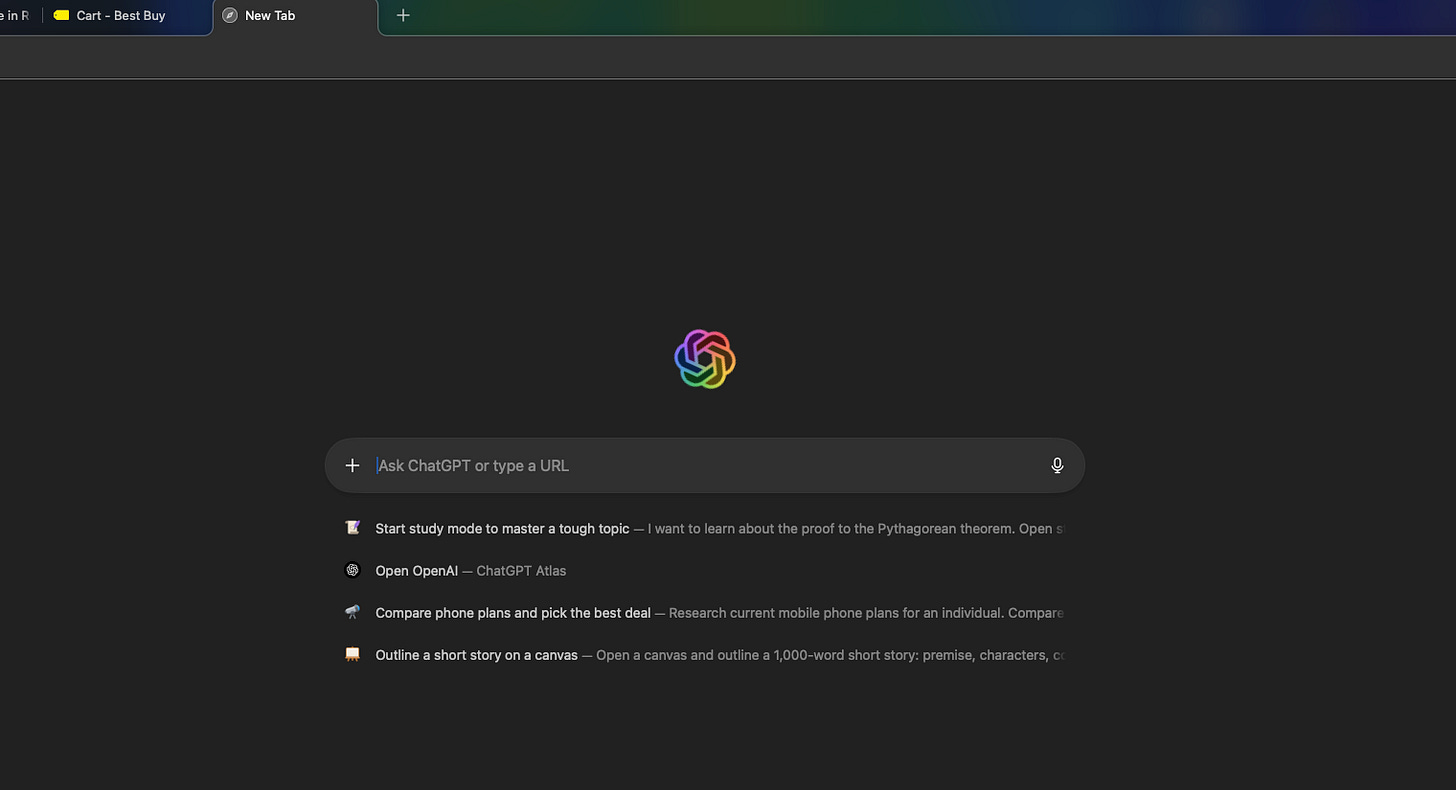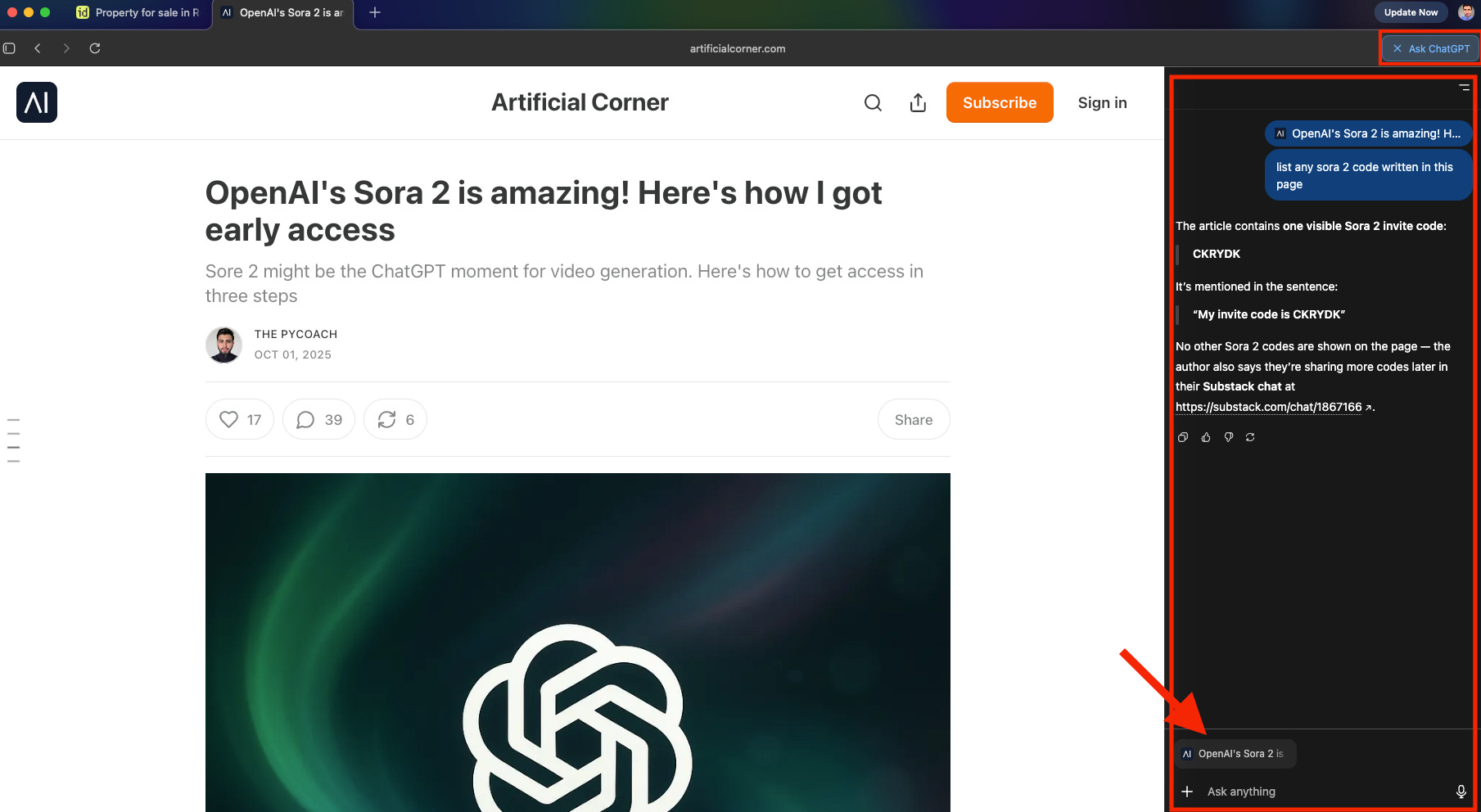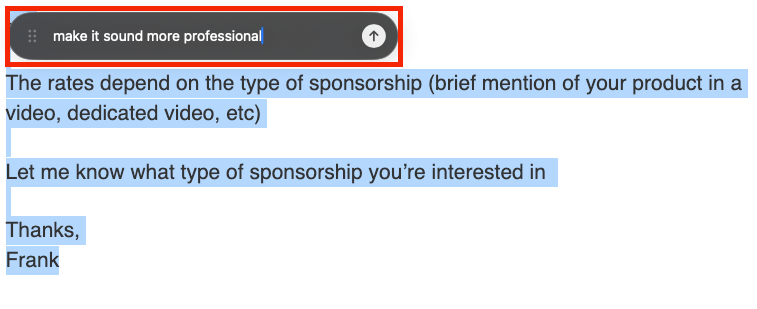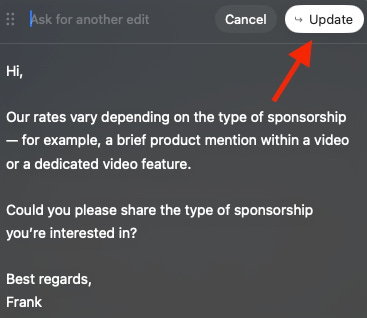ChatGPT Atlas Will Change Web Browsing Forever. Here's Where It Beats Chrome
My honest review of OpenAI's web browser.
Since ChatGPT was released, we’ve heard multiple times that it’ll kill Google Chrome. That was mainly social media hype because ChatGPT was never a direct competitor to Chrome.
However, yesterday OpenAI launched its full-fledged browser: ChatGPT Atlas (not just a plugin). Atlas is available to all ChatGPT users worldwide, but for now only supports macOS devices (Windows, iOS, and Android coming soon).
In this article, I explain where I’m replacing Chrome with Atlas (without sacrificing privacy), ChatGPT Atlas prompts to copy & paste, and the best use case I found in Atlas (that no one is talking about).
Hi! I’m Frank (aka The Pycoach)
AI & Python instructor. Over the past year, I’ve helped thousands on YouTube and Udemy master AI with beginner-friendly guides and in-depth tutorials
If you’re new here, welcome! Here’s what you might’ve missed:
What sets ChatGPT Atlas apart from other browsers?
When you first open ChatGPT Atlas, it looks like any other browser. It has a URL bar, bookmarks, tabs, incognito mode, and more, but with a ChatGPT-like experience (mode selector, features inside +, etc).
When you search for something, the browser generates a response and displays these tabs:
Home is the main tab (here you get the AI-generated response). If you paste a link, you’ll be taken directly to the site. There’s also a web tab (for traditional search results), image tab, and video tab. So far, it seems like a mix between ChatGPT and a traditional browser.
But Atlas can do a lot more!
Here’s what sets ChatGPT Atlas apart from traditional web browsers:
#1 ChatGPT sidebar (my favorite feature)
Atlas includes a ChatGPT sidebar that you can pull up on any webpage to ask questions or get context about what you’re viewing.
In the example below, I open my article about the Sora 2 release and ask ChatGPT to extract any Sora 2 code listed in the article. In a few seconds, I got the code. You can use this feature to summarize content, compare products, analyze data from any site you’re viewing and more.
#2 ChatGPT in-line help
You can invoke ChatGPT inside sites and take action with one click. When you highlight text on any site, a ChatGPT icon appears in the corner. Click it, and a prompt bar pops up.
After running the prompt, you can make changes by clicking on the Update button.
#3 Agent Mode
Atlas has agent mode, which allows ChatGPT to control the browser on your behalf. The agent can click links, navigate pages, complete multi-step tasks, and do other actions for you in the browser (it’s like ChatGPT Agent inside your browser)
While Chrome might suggest information, it won’t go book your hotel or fill your cart for you. In Atlas, you can ask something like, “Find me a highly-rated TV under $1000 and prepare the purchase” and the ChatGPT agent will autonomously surf through sites, compare options, and even put the item in a shopping cart (we’ll go over privacy and safety controls later)
Here’s a demo of how agent mode works (x8 speed):
Here are some extra perks:
ChatGPT Atlas is a browser that actively learns from you (the more you use it, the better it performs)
You can use plain English commands like “Reopen that recipe I viewed yesterday,” and it will check your web history and execute the command
There’s no trade-off in browsing quality. Atlas is built on Chromium, so it renders sites the same way Chrome does and supports modern web standards.
To download it, go to https://chatgpt.com/atlas
In the next section, we’ll see some ChatGPT Atlas prompts to copy & paste, the best use case I found in Atlas that anyone into automation will love (it’s not agent mode!), and some tweaks to do if you care about privacy.







